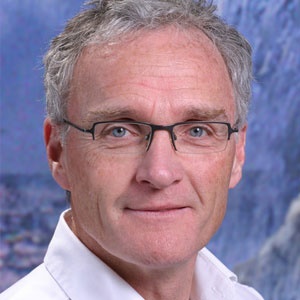
A hearing at the Health Professionals’ Council of SA (HPCSA) with Professor Tim Noakes, continues today (12 February 2016) following a controversial day of testimony by the low carbohydrate, high fat lifestyle proponent.
At the end of proceedings yesterday Adv Rocky Ramdass representing Noakes, asked that Prof. Stephen Cunnane, be allowed to give testimony this morning.
The Chair advocate Joan Adams has pointed out that Noakes is having trouble finding experts in South Africa to testify, which is why he has requested testimony from Professor Cunnane.
New HPSCA Advocate Ajay Bhoopchand has objected to the expert's testimony being given. A debate was entered into yesterday but was unable to reach a definitive conclusion because of time constraints.
Follow the live updates on News24
Who is Professor Stephen Cunnane?
He is a professor specialising in brain metabolism and aging at the Université de Sherbrooke, Canada and author of Survival of the Fattest.
Earlier this year he was quoted in the Toronto Star saying: "There's always been some questioning in the scientific community about the idea that a low-fat diet would solve the problem of obesity," says the University of Toronto professor. "But the consumer became wed to the idea, hook, line and sinker."
Because it was simple. Because everybody, from the government to health groups, seemed to endorse it. Because so many fat-free (read guilt-free) foods blossomed on grocery shelves.
For more than 20 years, fat has been public dietary enemy number one. But with rates of obesity rising dangerously, some researchers are questioning that premise more loudly.
Professor Stephen Cunnane's bio
The Institute for Food, Brain and Behaviour published the following on their website:
"Stephen Cunnane obtained a PhD in Physiology at McGill University in 1980, followed by post-doctoral research on nutrition and brain development in Aberdeen, London, and Nova Scotia.
He was a faculty member in the Department of Nutritional Sciences, University of Toronto, from 1986 – 2003, where his research was in two overlapping areas – (i) the role of omega-3 fatty acids in brain development and human health, and (ii) the relation between ketones, the very high fat ketogenic diet and brain development.
In 2003, Dr. Cunnane was awarded a senior Canada Research Chair at the Research Center on Aging and became a full professor in the departments of Medicine and Physiology & Biophysics at the Université de Sherbrooke.
The main themes of his current research are to use brain imaging techniques to study changing brain fuel metabolism and cognitive function during aging, and to understand how and why omega-3 fatty acid homeostasis changes during aging.
He has published over 280 peer-reviewed research papers and was elected to the French National Academy of Medicine in 2009.
Dr. Cunnane has published five books including two on flaxseed in human health and two on nutritional and metabolic constraints on human brain evolution - Survival of the Fattest: The Key to Human Brain Evolution (World Scientific 2005), and Human Brain Evolution: Influence of Fresh and Coastal Food Resources (Wiley, 2010).
Read more:
Tim Noakes to defend Banting for babies
Tim Noakes faces inquiry over 'Banting' tweet
Tim Noakes hearing: we need clarity, says Claire Julsing-Strydom




 Publications
Publications
 Partners
Partners














